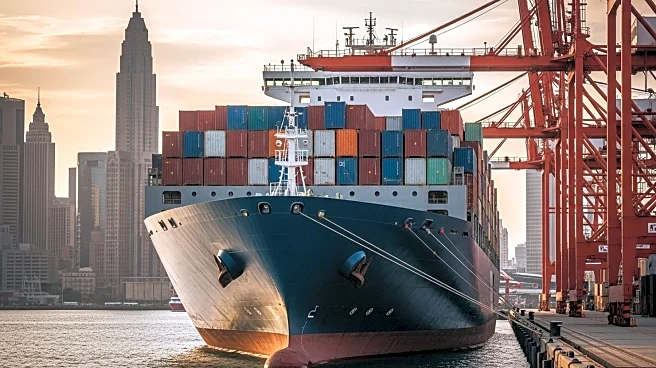What is the story about?
What's Happening?
President Trump has announced new tariffs affecting European trade, including a 100% tariff on pharmaceutical products starting October 1. The tariffs are part of a broader strategy under the International Economic Emergency Powers Act of 1977, which allows for temporary tariffs that can be extended indefinitely by Congress. The EU-US trade deal concluded last July provides clarity on tariffs, with a 15% blanket tariff on most-favoured nation goods and 50% duties on steel, aluminium, and copper products. The EU has agreed to remove its tariffs on industrial goods and pledged significant investments into the US economy.
Why It's Important?
The tariffs represent a significant shift in US trade policy, potentially impacting European producers and altering the dynamics of international trade. The tariffs are expected to generate substantial revenue for the US government, which could be used to finance parts of the fiscal deficit. The legal challenges surrounding these tariffs could affect their longevity and the broader trade relationship between the US and EU. The tariffs may also influence global supply chains, particularly in sectors heavily reliant on steel and aluminium.
What's Next?
The US Supreme Court is expected to rule on the legality of these tariffs under the International Economic Emergency Powers Act on November 5. This decision could have significant implications for the future of US trade policy and its impact on international relations. European producers and governments may need to adjust their strategies in response to these tariffs, potentially seeking new markets or negotiating further trade agreements.
















